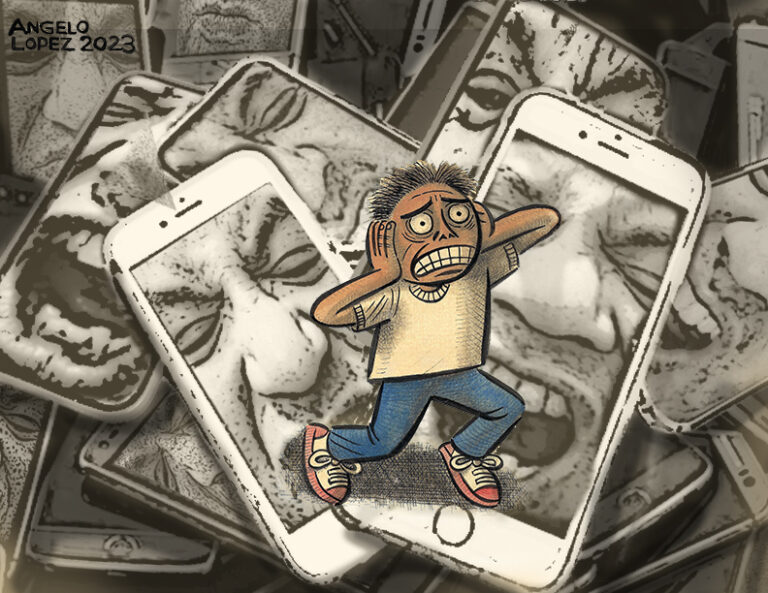
By Angelo Lopez
In the Philippines and throughout the world, social media disseminate false information that bolsters the most angry and extreme voices. This deluge of angry voices and misinformation undermines democracy by impeding the capacity of responsible journalism to convey accurate facts, thereby preventing citizens from engaging in a rational discussion about the most pressing political issues facing the nation.
Instead, social media has a tendency to funnel individuals into ideological bubbles where their views are not questioned and they are inundated with conspiracy theories and the demonization of those with whom they disagree. Individuals become more susceptible to groupthink.
Democracies are founded on the notion that individuals with divergent opinions can vigorously debate an issue and be willing to compromise and find common ground when the debate reaches a stalemate. The disinformation campaigns demonise those who disagree with them and eliminate all potential areas of agreement. This renders impossible any kind of reasonable democratic debate in which common ground can be identified and consensus can be reached.###
Sources:
Social media in 2021: Networked propaganda and disinformation get into high gear (rappler.com)
In the Philippines, a Flourishing Ecosystem for Political Lies – The New York Times (nytimes.com)
They’re getting smarter: How disinformation peddlers avoid regulation (rappler.com)
Tracking the Marcos disinformation and propaganda machinery (rappler.com)
[ANALYSIS] Fake news, internet propaganda, and Philippine elections: 2016 to 2019 (rappler.com)
51% of Filipinos find it difficult to spot fake news on media – SWS (rappler.com)
Fake news sources: 58% say social media influencers spread false info | Inquirer News
‘Fake news’ mainly comes from gov’t agencies, officials – UP prof – Bulatlat
Rights group calls on UN expert to look into disinformation, red-tagging – Bulatlat
PH social media users face barrage of bogus medical posts | ABS-CBN News
